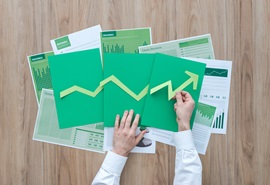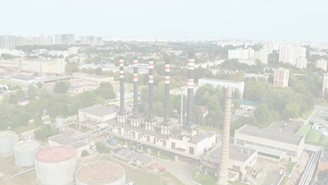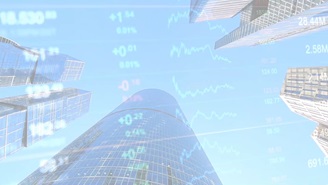Sustainability-Linked Loans 2021: The COVID-19 Effect, ESG Ratings & Continued Popularity
The sustainable finance market has seen an exponential increase in size and activity in recent years. Innovative offerings such as green, social, and sustainable bonds, green and sustainability-linked loans (SLLs), and most recently sustainability-linked bonds, have contributed to the market’s incredible growth. In 2020, boosted by varied financial needs and mainstream recognition of environmental, social and governance (ESG) parameters, global sustainable debt capital surpassed US$700 billion, a 30% increase compared to 2019. Part of this capital was channelled towards tackling the effects of COVID-19 as government agencies, supranational bodies and corporates borrowed money to support areas most affected by the pandemic, such as healthcare. This shift in fund usage in 2020 resulted in the rapid growth of social bonds and a commendable first year for sustainability-linked bonds.
Deforestation and Biodiversity Loss Highlight the Need for a Better Normal
The world is aching for a return to normality after a year (and still counting) of news bulletins being dominated by the COVID-19 pandemic; Earth Day 2021 should serve as a stark reminder that we cannot go back to business-as-usual. We must address the vast environmental challenges facing humanity, such as climate change, loss of biodiversity, extreme weather and issues related to water.
Tracking the Progress on Gender Equality through Sustainable Finance
A key result of achieving UN SDG 5 - Gender Equality is global economic development. However, as women globally were disproportionately impacted by the COVID-19 pandemic, the financing of activities that contribute to the empowerment and socio-economic advancement of women and girls will need to be accelerated to meet the goal by 2030. One option for creating targeted gender investment is the development and issuance of Gender Bonds that specifically support the advancement, empowerment, and equality of women.
UNICEF Collaborates with Sustainalytics to Highlight Children’s Rights Issues for Investors
While child labor remains a serious problem across industries and countries, it is only one part of the overall issues pertaining to children’s rights; companies and investors should recognize the scope and relevance of this topic.
Personal Products and the New Ethics of Product Naming
Over recent years, personal product (PP) companies have faced an increasing demand for more inclusive product governance – from formulations to labels – and marketing that reflects the diversity of consumers. To grow sustainably within their communities and stay relevant for their target customers, such companies need to create value for society proactively. Some of the major players in this industry have already started paving the way for others.
Investing in Companies with Positive Momentum in ESG Risk and Economic Moat Development
In Sustainalytics’ paper, Combining ESG Risk and Economic Moat,[i] we examined the effect of combining the two metrics, showcasing the benefits of higher returns and lower downside risk. More specifically, investing in companies with negligible/low ESG risk and wide economic moats was advantageous for creating alpha over the past four years.
A Reflection of Water Reporting Around the World
On World Water Day, we reflect on global companies’ dedicated attention to this most vital resource. Water risks are related to nine of the top ten worst global risks in the Global Risk Report published by the World Economic Forum, with risks likely to increase due to climate change. As global water resources contend with increased stress, companies are expected to face growing scrutiny of their water use due to the significant impacts that it can have on resource security and the health of ecosystems. This scrutiny may manifest in business risk, including limits placed on water withdrawal, increasing costs and heightened regulations.
Water Security: Global Challenge, Local Solutions
The growing scarcity of freshwater resources is a risk to the economic, social, and environmental well-being of populations worldwide, and a material issue for companies. Corporate-wide water strategies are essential, but because water security challenges are experienced at the local level, and water basin conditions are unique, there is no one-size-fits-all solution for companies to implement.
Deepwater Plays Against Rising Risks: The U.S. Gulf of Mexico
As onshore resources became harder to locate over the past decades, offshore exploration and production have grown into a global industrial activity. The prospect of finding hydrocarbons has led some companies to explore deeper waters in some regions.
Gender Equality in Supply Chains: An Opportunity to Increase Positive Impacts
It’s well known that inequalities between men and women still exist in the workplace. Women are less likely to fill senior leadership positions (29% in North America), earn less (81 cents per dollar in the US) and own fewer businesses (39% of businesses in the US) than men.
Is the COVID-19 Pandemic Threatening Progress on Gender Equity?
The COVID-19 pandemic has disrupted lives and livelihoods on an unprecedented scale. Despite massive government spending, the pandemic resulted in the global economy shrinking by 3.5% in 2020.[i] However, the financial burden of this pandemic has not been borne evenly.
Five Commonly Asked Questions About Sustainalytics’ Approach to Impact
We launched our new Impact Metrics product to support investors’ growing need for more robust data that can be used to demonstrate how ESG-focused strategies can deliver real-world social and environmental outcomes. Since the launch, I have connected with many enthusiastic institutional investors eager to make sense of the rapidly evolving world of impact, excited to dive into impact data, and cautiously optimistic about supporting their clients’ Sustainable Development Goal (SDG) and impact needs.
EU Sustainable Finance Disclosure Regulation: An Update
Update - 3 March, 2021: To help investors comply with the new requirements of the SFDR, Sustainalytics launched the PAI Data Solution that maps our research to the 60 indicators defined by the regulator. This new dataset will enable investors to consider the PAIs in their investment decisions as well as supporting disclosure requirements. Visit our website to learn how we can help with you SFDR compliance journey.
Lessons Learned from 926 Engagement Meetings in Emerging Markets
When Sustainalytics (GES[1]) initiated the Emerging Markets (EM) Engagement program as a pilot project in 2009, the scale, scope and impact were undetermined factors. Based on the successful execution of the program methodology in the African and Middle Eastern regions during the pilot stage, the full program launched in 2010 to cover all major emerging markets. After the project close in July 2020, the program accounts for 926 meetings with companies in emerging markets.
A Political Pivot for Climate Change and the American Coal Industry
As the Biden administration moves into the White House this week, the world is waiting to see if a promising focus on climate change along with a Democratic Congress will present plausible opportunities to cut carbon emissions. While the outgoing administration backed initiatives supporting coal energy[1], it doesn’t appear to have slowed industry decline.
Is Natural Gas a Cleaner Energy Solution?
While Oil and Gas (O&G) operations are responsible for roughly 15 percent of global energy-related GHG emissions, some energy companies have pledged the role of natural gas (NG) as a transitional fuel. At the same time, NG energy use is increasing globally, and shale-gas extraction is booming at an unprecedented rate. One factor that is often overlooked is the methane emissions across the NG value chain.
Integrating Climate Risk into Corporate Governance
Since the introduction of the Taskforce on Climate-related Financial Disclosures (TCFD), there has been increased scrutiny of corporate climate governance and broader associated risks. Investors have increased their focus on climate risk, as governance mechanisms are likely to be impacted by transition and physical risk challenges[i].






.tmb-thumbnl_rc.jpg?Culture=en&sfvrsn=d0660f9e_1)












